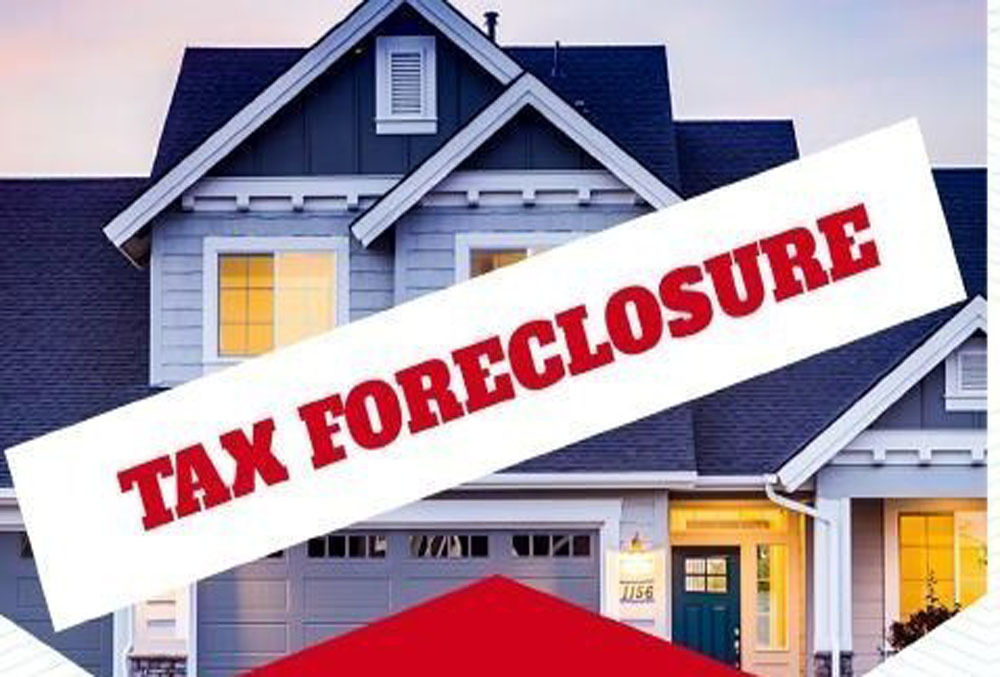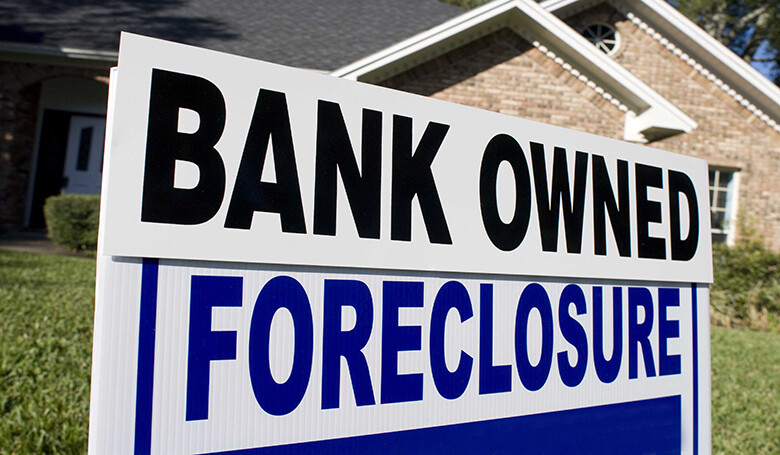Welcome to Public Auction Notice
About Us
Public Auction Notice is a reputable online notification Service for Illinois delinquent property owners. We are the primary notification source for owners experiencing foreclosure, Tax Delinquent, and City Violations. and city violations. Public Auction Notices keep property owners notified.
Our Services
At Public Auction Notice, we provide professional notification services and public recorded documents to ensure a timely court notification reporting system. Property Owners are able to post their property for sell or Donate to a Non-Profit Organization to be free from the Burdon and financial responsibility.
Upcoming Auctions
Public Auction Notice keep Illinois property owners informed of upcoming foreclosure auctions, tax and city lien court dates. Membership is Free! Receive emails or text message Notifications on the name of the tax buyer’s filings: tax sale purchase and bid amount aon the last day to redeem.

Tax Delinquent Notifications
Public Auction Notices
Property taxes are taxes levied on real estate by local governments, typically municipalities or counties, and are based on the assessed value of the property. These taxes are used to fund various public services and infrastructure projects within the community. Such as schools, roads, public safety services, parks, and libraries.
Property taxes are an important source of revenue for state and local governments and play a crucial role in financing essential services that benefit residents and businesses alike. The amount of property tax owed is determined by multiplying the assessed value of the property by the local tax rate. The rate is typically expressed in terms of “millage” or a percentage of the property’s value.
The government assesses property taxes annually. Although, the specific assessment process and timeline can vary depending on the jurisdiction. Property owners are usually notified of their property’s assessed value and the corresponding tax rate through a property tax assessment notice or statement sent by the local tax authority.
Property owners need to understand their property tax obligations and ensure that they pay their taxes on time to avoid penalties, interest charges, and potential legal consequences such as tax liens or foreclosure proceedings.
Property tax rates and assessment methods can vary widely from one jurisdiction to another, so property owners should familiarize themselves with the specific rules and regulations governing property taxes in their area.
However, with property taxes often comes dreaded delinquency notices in the mail. In this guide, we’ll delve into why Certified Mail is your best friend in handling these notices like a pro.
Understanding Delinquency Notices
What does delinquent notice even mean? A delinquent notice, also known as a tax delinquency notice or tax bill, is a formal notification sent by the local tax authority to property owners who have failed to pay their property taxes on time.
This notice serves as a reminder to the property owner that their taxes are past due and outlines the consequences of continued non-payment. Such as penalties, interest charges, and potential legal action.
Receiving a delinquent notice is a warning sign that you need to address your unpaid property taxes promptly to avoid further penalties and the potential loss of your property through tax liens or foreclosure. It’s essential to carefully review the delinquent notice and take appropriate action to resolve the issue with the tax authority as soon as possible.
But, why did you receive that ominous-looking delinquency notice in the first place? Well, it usually boils down to one thing: missing the deadline to pay your property taxes. Life gets busy, and it’s easy for those due dates to slip your mind. You aren’t alone.
Consequences of Non-Payment
Now, you might be wondering, “What happens if I don’t pay property taxes?” Unfortunately, it’s a bigger deal than you might think.
Ignoring those property tax bills can lead to some serious consequences. Such as late fees, interest charges, and even the possibility of losing your property altogether. Yes, you read that correctly – losing your hard-earned property! A situation no property owner wants to find themselves in.
Let’s elaborate on the consequences that can occur if you fail to pay your property taxes:
Penalties and Interest: Most jurisdictions impose penalties and interest on unpaid property taxes. These penalties can accrue over time, significantly increasing the amount you owe.
Tax Lien: One of the most significant consequences of not paying property taxes is the possibility of a tax lien being placed on your property. A tax lien gives the government the right to claim your property if the taxes remain unpaid. This can severely affect your ability to sell or refinance your property until the taxes are paid and the lien is released.
Foreclosure: In extreme cases of non-payment, particularly if taxes remain unpaid for an extended period, the government may initiate foreclosure proceedings to seize and sell the property to recover the unpaid taxes. Losing your property to foreclosure can have devastating financial and personal consequences.
What happens if I don’t pay my property taxes?
In Illinois, homeowners pay property taxes to the county tax collector of the county where the property is located. The county collector is usually the County Assessor or Treasurer.
If you do not pay your property taxes, you could lose your home. The county has a lien against your property for the amount of taxes owed. The county can then sell the lien to a tax buyer, who steps in to pay the taxes to the county. Even if your property taxes are sold, you remain the property owner subject to the discussion below.
You must “redeem,†or pay, the delinquent taxes, and penalties, plus costs, to the county clerk within 30 months of the tax sale. If you do not, the tax buyer can ask the court for a tax deed. If the tax buyer gets a tax deed, and records it with the county recorder of deeds, they become the legal owner. They can then evict you from your home. This process is explained in more detail below.
Note: This article applies to residential properties. It does not apply to commercial properties.
Tax sale overview
The tax sale process typically involves the following steps:
1. Notice by U.S. mail
Before the county sells unpaid taxes it sends the taxpayer notice by mail that the taxes are past due, or “delinquent.†The past due notice usually contains a deadline by which to pay the taxes. If you do not pay the taxes owed before the deadline, the collector will publish notice that it will sell your taxes.
If you think that there are property tax exemptions you should have received, due to your age, income, or disability, you can file certificates of error with the county collector before the date in the overdue notice. You can only go back 3 years to get a refund. Filing certificates of error should temporarily remove your property from the tax sale process while the county evaluates your refund request.
2. Published notice of delinquent properties
Next, the county collector will include your property in a list of properties with delinquent taxes that is published in a local newspaper.
The county will also mail a notice to you by registered or certified mail.
3. Tax sale
If you do not pay the taxes or apply for certificates of error before the date of the annual tax sale, the county may sell your unpaid taxes at a public auction.
4. Redemption period
After the unpaid taxes are sold to a tax buyer, you still have the right to redeem the taxes from the county clerk within 30 months. The tax buyer may agree to extend the 30-month period to give you more time to pay. But the tax buyer does not have to give you more time.
The tax buyer must prepare a notice of the expiration of the period of redemption and deliver it to the clerk of the Circuit Court. The clerk then must mail you the notice at least 3 months before the period of redemption expires.
5. Redemption process
To find out how much you need to pay to redeem the taxes, you need to apply to the county for an “estimate of redemption.†The fee for the estimate of redemption may be as little as $10, but generally increases over time. You should apply for the estimate of redemption well before the 30-month deadline.
To redeem the taxes, you must pay the county clerk the full amount shown on the estimate of redemption. This includes:
- Delinquent and current taxes,
- Interest, and
- Penalties plus costs.
The interest, penalties, and administrative costs can be substantial.
6. Tax deed
If you do not redeem the taxes from the county clerk within the 30-month deadline, the tax buyer can ask the court for a tax deed. Once the tax buyer records the tax deed, the tax buyer becomes the legal owner of the property. They can then evict you from the home.
7. Eviction
After it has a tax deed, the tax buyer can simply file a motion to evict you from the home in the same case in which it requested the tax deed. It does not need to file a new case for the eviction or serve you with a new summons.
What if I have a mortgage on the property?
A tax lien recorded by the county collector takes priority over all mortgages or liens recorded against the property, even those that were recorded before the tax lien. This means that the county will get paid before any other banks or people who have a claim to the home.
If you have a mortgage, and fall behind on property taxes, the mortgage company likely will step in to pay the taxes to the county collector. The mortgage company wants to protect its interest in the property.
Note: Failure to pay taxes is usually not allowed under a mortgage contract. This may result in the mortgage company filing a foreclosure.
What if I can’t afford to redeem the taxes?
If you cannot afford to redeem the taxes, you may want to try contacting your mortgage lender to see if it will redeem the taxes and add the balance to your existing mortgage.
You may also consider taking out a home equity line of credit (“HELOCâ€) or reverse mortgage to pay the taxes. To qualify for a reverse mortgage, you must be at least 62 years old. You should talk to an attorney or banker about the consequences of a reverse mortgage before choosing this route.
What if I have already lost my property to a tax buyer?
If you have already lost your property to a tax deed, you may be able to get some money from the county Indemnity Fund to compensate you for the lost property. You may be able to work with the tax buyer to use that money to buy back the property.
When to Decide To Sell or Donate
Many Property owners sell their property prior to the successful tax buyer receive a Tax Deed. If your family decided redeeming the delinquent property taxes is not possible Selling your property could give your family a new beginning with cash in the bank.
DONATE your property to a good cause. GODRE.ORG is a non-profit 501 3C Organization and will all your owed debt attached to the property and give your family money to relocate. GODRE.ORG mission is to provide homes and day care centers for foster care children visit: Godre.org

Bank Foreclosure Notifications
If you cannot keep up with your mortgage payments, the prospect of foreclosure—and with it losing your home—can be daunting. Still, foreclosure is a rigorous legal process, and you have certain rights based on state law along with the mortgage documents you signed.
Knowing your rights can help you navigate the foreclosure process as smoothly as possible or even avoid it if your lender violates any foreclosure requirements. Here’s what you need to know.
KEY TAKEAWAYS
- If you fall behind on your mortgage payments, your lender could try to take back your property through a foreclosure.
- Before initiating a foreclosure proceeding, your loan servicer must send you a notice that the loan is in default
- This notice will give you a chance to get caught up or make a payment plan with your lender to avoid foreclosure.
- You have the right to challenge a foreclosure if you think your lender made a mistake or has violated the law.
- A notice of preforeclosure does not mean you need to vacate the home.
What Is Foreclosure?
Simply put, foreclosure is the legal process that allows lenders to recover the balance owed on a defaulted loan by taking ownership of and selling the mortgaged property as collateral. Nonpayment is what usually triggers default, but it can also happen if a borrower does not meet certain other terms in the mortgage contract.
Your loan servicer is the company that handles your mortgage account, and it may or may not be the company that either issued or currently owns the loan. The loan servicer is required to contact you (or try to do so) by phone to talk about “loss mitigation” no later than 36 days after your first missed payment—and within 36 days of any subsequent missed payments. Loss mitigation is the process by which you and your lender work together to try and avoid foreclosure.
Foreclosure notices are sent through the mail. If you’re behind on your mortgage, read your mail carefully, and be sure to pick up any certified or registered mail.
“If you have not worked out some other option—foreclosure proceedings will likely begin. In general, you must be behind on payments for at least 120 days before a foreclosure can start, so your lender will likely send a breach letter close to the 90th day of the delinquency.”
Notice of the Foreclosure
You are entitled to notice of a pending foreclosure no matter which state you live in. If it’s a judicial foreclosure, you’ll get a complaint and summons letting you know that a foreclosure has begun. If it’s a nonjudicial foreclosure, you may receive two notices:
- Notice of default (NOD). Depending on state law, a nonjudicial foreclosure starts when a notice of default is recorded at the county office. The NOD serves as public notice that you are in default. It contains details about the borrowers, lender, trustee, property, default, action required to cure the default, and a statement that if the default is not cured by the stated deadline, the lender will sell the property at a public sale.
- Notice of sale (NOS). The notice of sale might be mailed to you, published in a local newspaper, posted on the property, and recorded in the county land records. It includes details about the property, a statement that the property will be sold at a public auction, and information about the foreclosure sale.
- If you do not receive an appropriate notice under your state’s laws, you may have a defense against foreclosure. While that does not necessarily mean you could avoid the foreclosure, it may force the servicer to issue a new notice and start the foreclosure process from scratch. That could potentially give you enough time to get caught up on payments or sort out another option. An FDCPA validation notice may be combined with a breach letter.5
Mortgage lending discrimination is illegal. If you think you’ve been discriminated against based on race, religion, sex, marital status, use of public assistance, national origin, disability, or age, there are steps you can take. One such step is to file a report to the Consumer Financial Protection Bureau or with the U.S. Department of Housing and Urban Development (HUD).67
Right to Reinstate
Depending on state law, you may be able to stop a foreclosure if you make a lump-sum payment to get up to date on your loan, including any fees and expenses. After that, you resume your regular payments.
In general, you must reinstate the loan by a particular deadline, such as by 5:00 p.m. on the last business day before the property sale is scheduled.
Right of Redemption
Your mortgage contract may also give you the right to reinstate. Check your mortgage or deed of trust for a section known as the reinstatement clause, titled “Borrower’s Right to Reinstate After Acceleration” (or similar language) to find out if and how you can reinstate your loan.
If you do not have a right to reinstate through state law or your mortgage contract, the lender may allow you to reinstate after considering your request. If the lender refuses, you can ask a court to allow the reinstatement. In general, a judge would rather avoid foreclosure if you have the cash to get current on your loan.8
All states let borrowers pay off debt (including fees and expenses) and “redeem” their property before a foreclosure sale. Some states even allow borrowers to buy back the property after the foreclosure sale. To redeem the property, you pay the entire balance due before the foreclosure sale or reimburse the person or entity that bought the property at the foreclosure sale, depending on the situation.8
Right to Foreclosure Mediation
Some states, counties, and cities give property owners facing foreclosure the right to partake in mediation. In foreclosure mediation, you meet with your lender (or servicer) and an impartial mediator to discuss options like a loan modification, short sale, repayment plan, or deed in lieu of foreclosure.9
Homeowners are provided rights and protections to help them in the event of a potential foreclosure. Most lenders would prefer to work out a plan than foreclose on your home.
Right to Challenge the Foreclosure
No matter where you live, you have the right to challenge the foreclosure in court. You can participate in the existing foreclosure lawsuit if it’s a judicial foreclosure. However, if it’s a nonjudicial foreclosure, you must file your lawsuit. In general, it may make sense to challenge the foreclosure if you think the servicer made a mistake or violated the law.
Right to a Surplus
If the property sells at a foreclosure sale for more than you owe (including any fees, expenses, and liens on the property), you are entitled to the excess proceeds—called a surplus. Of course, depending on state law, if the foreclosure sale does not cover your debt, you may be on the hook for a deficiency judgment.10
Fair Debt Collection Practices Act Validation Letter
The Fair Debt Collection Practices Act (FDCPA) is a federal law that covers when, how, and how often third-party debt collectors can contact debtors. FDCPA may apply to foreclosures, but it depends on whether it’s judicial or nonjudicial:
- Judicial foreclosures. In general, judicial foreclosures are viewed as being subject to FDCPA because creditors can get deficiency judgments.
- Nonjudicial foreclosures. The FDCPA does not apply to firms pursuing nonjudicial foreclosures under a unanimous decision made in the U.S. Supreme Court case of Obduskey v. McCarthy & Holthus, LLP in March 2019.11
When FDCPA applies, your mortgage servicer must send you an FDCPA validation notice that includes:
- How much you owe, including interest, late charges, attorney fees, and other charges
- The name of the creditor
- A statement that explains that, unless you dispute the validity of the debt within 30 days of receiving the letter, the debt will be assumed to be valid
- A statement that, if you notify the debt collector in writing within the 30-day period to dispute the debt, the debt collector will get written verification of the debt and send you a copy
- A statement that the debt collector will provide you with the name and address of the original creditor, if it’s different from the current one if you request it within the 30-day period.12
What Does Foreclosure Mean?
A foreclosure occurs when your mortgage payments are past due for 120 or more days. If you don’t pay your mortgage, the bank (or lender) will begin a legal process called foreclosure. You can lose your home if you aren’t able to stop a foreclosure.3
What Does Pre-Foreclosure Mean?
If your home is in pre-foreclosure, it simply means your mortgage lender has issued a notice of pending foreclosure and you are at risk of losing your home. When a home is in pre-foreclosure, it is possible for you to work with the lender and other entities to try to hold onto your home.
How Can I Protect My Home From Foreclosure?
The best way to protect your home from foreclosure is to pay your mortgage bill on time. If you begin to have trouble paying your bill, speak to your lender right away and ask them if they will help you. Most loan servicers do not want to end up with homes in foreclosure and they will often try to help their borrowers.
The Bottom Line
Your legal rights in foreclosure vary depending on state law, your mortgage contract, and your situation. To learn more about your rights, consult with a local foreclosure lawyer who can help you navigate the process and ensure that your rights are protected.
Visit The Sold Auction List ?



